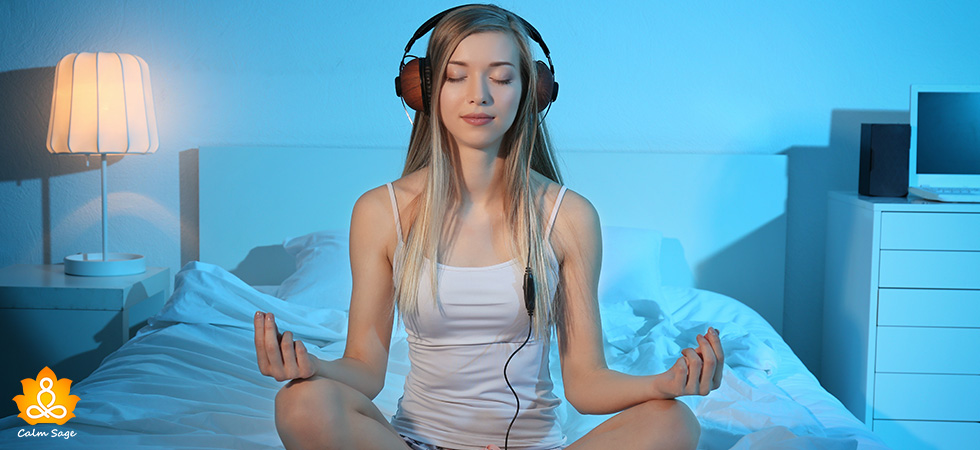All You Need to Know About Sleep Paralysis!

According to studies conducted by sleep researchers, sleep paralysis is a result of disturbed and rough movement during the stages of sleep. In most cases, the body movement is not smooth. In some cases sleep paralysis indicates underlying mental health conditions.
That’s what researchers think of sleep paralysis. In ancient times many cultures believed that sleep paralysis indicated the presence of a demon. Even today many people believe that it is an act of evil who is wanting to trouble you.
A friend of mine, a long time ago, described a horrifying incident to me. She said that she felt like someone was pushing her inside the bed. She felt pressure on her mouth as if someone had placed a hand over it. She said she was unable to move and remembers each detail about the incidence. Hence, she was sure it wasn’t a dream.
What do you think this was? I think she experienced sleep paralysis.
I am writing this blog so that we all gain knowledge about this condition and not pay attention to unnecessary information.
What Happens During Sleep Paralysis?
Sleep paralysis is a condition when you feel complete physical paralysis while you are transitioning from one to another stage of sleep.
Simply put, it is when you can’t move your body and feel like you are being sucked into the earth. All this is felt while you are partially awake mostly when the REM sleep cycle is complete and you are about to enter the first stage of sleep again.
This period of sleep paralysis can last from a few seconds to a few minutes. Some people are unable to move or speak, some people feel a certain kind of weight of the body and can also feel like they are being choked.
Sleep paralysis can occur in two conditions. You are most likely to experience it during one of the two phases.
1. Predormital sleep paralysis: Also known as hypnagogic sleep paralysis, is the time when you are falling asleep.
2. Postdormital sleep paralysis: Also known as Hypnopompic sleep paralysis, is the time when you are waking up from sleep.
What are the Symptoms of Sleep Paralysis?
Even though experiencing sleep paralysis doesn’t mean you have to be rushed to the emergency room, it still can be terrifying.
Therefore, being aware of the symptoms can help you deal with them in a better way.
- Inability to move (limbs)
- A sense of pressure or weight on your body
- You feel like someone is present in the room along with you
- Hallucinations
- Fear
- Difficulty in breathing
- Feels like a near-death experience
- Paranoia
- Headache, muscle aches, sweating
These are some things that you might experience while you are having a sleep paralysis episode. These symptoms usually vanish on their own or if someone tries to move or touch you. The hallucinations can trigger anxiety and stress in some people other than that they are mostly harmless.
What can be the Cause of Your Sleep Paralysis?
Like many other psychological conditions, not all are susceptible to sleep paralysis. Some people are at a higher risk than others. Some mental health conditions put you at an increased risk of experiencing sleep paralysis
- Anxiety Disorders
- Post-traumatic stress disorders
- Depression
- Bipolar disorder
- Insomnia
- Narcolepsy
- Sleep disorders
Experts say that a disconnect of the body and mind from each other can be the reason behind sleep paralysis. Poor sleep hygiene can also be a potential cause.
Your sleeping pattern has a lot to do with sleep paralysis. A disturbed sleep perhaps because of your late working hours or traveling to different time zones can make you experience sleep paralysis.
How to Avoid Sleep Paralysis?
If you have been experiencing sleep paralysis, the first thing that you have to do is switch to a healthier lifestyle.
Here’s a list of things you can do so that you can reduce the frequency of sleep paralysis:
- Work on reducing stress in life (practice stress management)
- Have a strict sleep schedule and be consistent with it
- Allow your body to rest (don’t overwork)
- Make sure you take all your medicines (if any) as directed by your doctor
- Exercise daily
- Sleep on your side (sleeping on the back increases the risk of sleep paralysis)
- Consider seeing a therapist (if the trouble is unbearable)
- Give yoga a chance
- Learn Breathing exercises
- You can also try trauma counseling (because the experience can leave you traumatized)
Take away
Sleep paralysis is not very dangerous but it can leave you terrified. Therefore the more you know about your condition the better. Having a healthy sleep routine is very, very important so make sure you maintain that.
If you already are in treatment for some mental health condition, make sure you are regular with your medicines and therapy.
I hope this blog helped you reach the depth of sleep paralysis, its causes and symptoms, and how you can avoid having sleep paralysis. Have you ever had a sleep paralysis episode?
Let me know in the comment section below!
Thanks for reading.
Take care and stay safe!




















